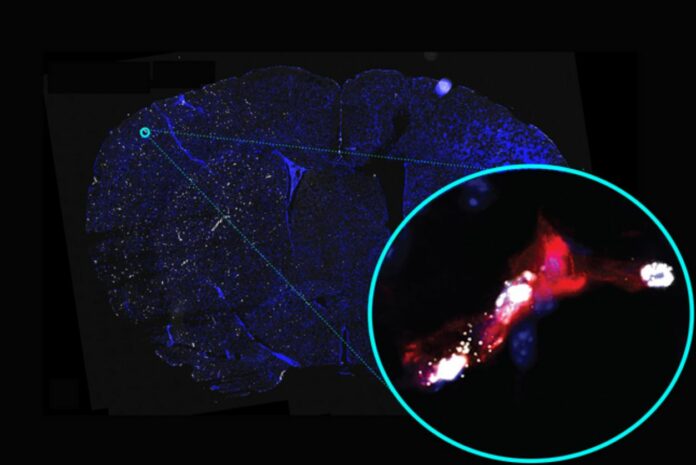Strokes are a leading cause of mortality and long-term disability worldwide. A new study by Weill Cornell Medicine scientists reveals how gene activity changes in small blood vessels in the brain could be targeted with drugs to treat stroke and prevent brain damage.
According to a recent study published in the Proceedings of the National Academy of Sciences, strokes can cause significant changes in gene activity within small blood vessels in the brain.
Conducted by researchers at Weill Cornell Medicine, the study explored gene activity changes in a preclinical model following stroke and compared them to those seen in stroke patients. The team identified hundreds of genes with stroke-driven changes that are likely relevant to human strokes.
These changes are potentially targetable with both existing and future drugs, offering hope for the mitigation of brain injury and improved stroke recovery.
Dr. Teresa Sanchez, the senior author of the study and assistant professor of pathology and laboratory medicine, as well as the principal investigator of the Laboratory of Molecular and Translational Vascular Research at Weill Cornell Medicine, stated that the study’s “findings provide a knowledge base that improves our understanding of strokes.”
She added that specific molecules and pathways have been identified as potential targets for future stroke treatments.
Furthermore, the study revealed molecular features linked to vascular dysfunction in the human brain after stroke, which is a major cause of dementia. This suggests that vascular disease is associated with and contributes to cognitive dysfunction and dementia, which is increasingly recognized by experts.
Stroke has been a leading cause of mortality and long-term disability globally for a long time. Ischemic strokes, which involve a blood clot in a brain-serving vessel, constitute the vast majority of strokes. The blood flow’s blockage or severe reduction causes a lack of oxygen and nutrient delivery to brain cells downstream, resulting in their death or injury. Inflammatory processes are also triggered, which can cause further damage. The cerebral microvasculature, or small cerebral blood vessels downstream of the blockage, is also impacted, and changes in them are believed to contribute further to brain damage following a stroke. However, accurately recording these microvascular changes has been technically challenging, and they have not been as thoroughly studied as other aspects of stroke, nor do they have any specific treatment.
To address these challenges, Dr. Sanchez and her team, which included co-first authors Drs. Keri Callegari, Sabyasachi Dash, and Hiroki Uchida, utilized the latest optimized techniques, recently published by the Sanchez lab in Nature Protocols, to study stroke-affected vessels. They conducted a comprehensive analysis of post-stroke changes in gene activity in the cerebral microvasculature in mice, identifying the changes that have also been observed in human stroke patients.
The team discovered that the activity of 541 genes was altered similarly in both mouse and human cerebral microvessels post-stroke. These genes were divided into groups based on their functional roles and disease links, with several significant clusters identified, including those related to general inflammation, brain inflammation, vascular disease, and the type of vascular dysfunction that leads to cerebral microvessel leakiness. This leakiness indicates a weakening of the blood-brain barrier, the cellular lining of cerebral microvessels that protects the brain by preventing most components of circulating blood from entering it.
Dr. Sanchez “found that, following stroke, some molecules that would weaken the blood-brain barrier were upregulated, while others that should protect the blood-brain barrier were downregulated.
“This is consistent with clinical observations of blood-brain-barrier disruptions following stroke.”
The researchers also identified the disruption of normal activity in genes that regulate the levels of sphingolipids, fat-related molecules that play a significant role in regulating blood vessels. Disruptions in the normal functioning of sphingolipids have been observed in conditions such as stroke, atherosclerosis, and vascular dementia. The team found that some types of these sphingolipids are present in higher concentrations in cerebral blood vessels compared to brain tissue. They also identified changes in these sphingolipids in the cerebral microvasculature caused by stroke, as well as changes in key molecules that control their levels. These novel findings will allow the pharmacological targeting of these pathways for the discovery of stroke therapeutics.
The study also evaluated the “druggability” of many of the molecules whose production was altered post-stroke, assessing their suitability for targeting with small-molecule drugs. Some of these molecules are already being targeted by candidate drugs to treat other diseases, indicating the potential repurposing of these drugs for the treatment of stroke and dementia.
Dr. Sanchez and her team are now conducting preclinical experiments using candidate drugs or genetic methods to reverse specific microvascular changes identified in their study. They aim to determine whether these interventions could benefit stroke patients.
“We’ve generated this knowledge platform and we’re using it, but we also hope that other scientists will join us in these efforts to develop the first therapies targeting the microvasculature in stroke,” she added.
Image Credit: Adapted by PNAS
